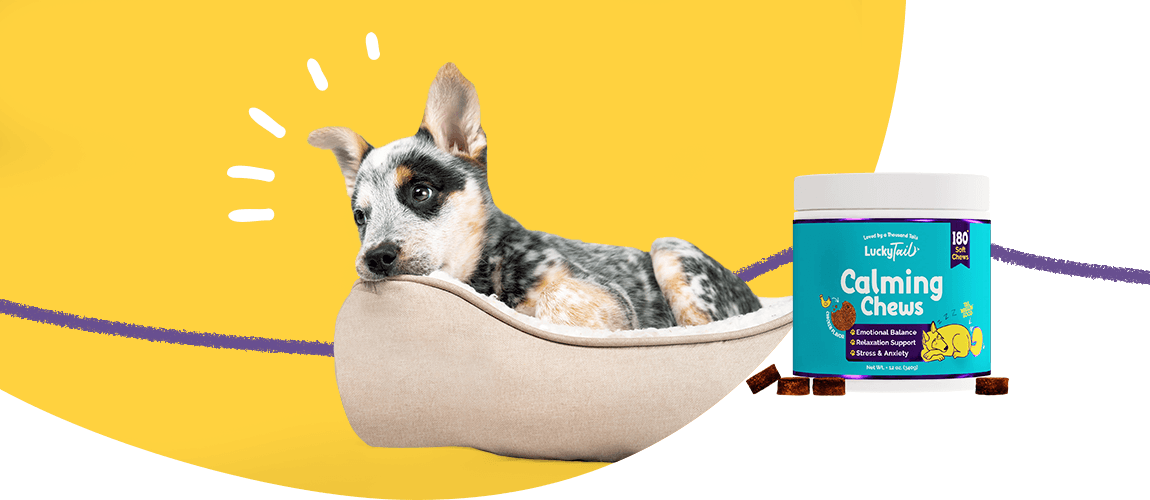
Your dog can experience stress that impacts their behavior, mental well-being and physical health. They can't tell you how they feel, but they can show you. Learn to spot the potential issues and discover several ways to reduce anxiety in dogs.
Recognizing the Signs
Dogs typically show behavioral cues or physical signs when stressed, such as:
- Panting heavily, even when the weather's cool or comfortable.
- Drooling, licking or yawning excessively.
- Cowering, trembling or hiding.
- Howling and barking when separated.
- Refusing favorite toys or treats.
- Engaging in hostile or destructive behavior.
Several common triggers can cause the above responses in your dog:
- Travel
- New people
- Time alone
- Loud noises
- Visits to the groomer or veterinarian
6 Tips for Calming a Stressed Dog
Learn how to comfort an anxious dog using the following tips.
1. Try Increased Physical Contact
Your dog loves your touch, and proactively treating them to extra cuddles and pets can calm them. Your canine companion's muscles can also tense up when stressed. A massage with gentle downward strokes over their body and limbs can relieve that tension.
2. Play Soothing Music
Relaxing music can calm a dog's anxiety and help block out noise-based triggers like fireworks or sirens. Research suggests dogs may prefer classical selections over others, but soft piano music is suitable as well.
3. Prepare Them With Play
Play is as important to your dog's well-being as it is to yours. Adding 30 minutes of bonding time with exercise is especially useful for dogs with separation anxiety. The extra activity releases pent-up energy, produces endorphins and stimulates their appetite. When you leave, they're likelier to have a full belly and be ready to recharge with a nap.
4. Consider Adopting Another Dog
Dogs are social animals, and they crave interaction with their peers. Having another dog as a companion can satisfy that need and help prevent separation anxiety. Instead of being alone when their human pack leaves, they'll have a canine friend as company.
5. Offer a Safe Space
Getting your dog away from the stressor is sometimes the best solution. Choose a quiet place where you know your pup feels safe. Add noise-canceling music or a fan and low lighting to help them feel more at ease. Alone time in a familiar, comfortable, secure spot lets them calm themselves.
6. Check Into Alternative Remedies
Many safe, natural and alternative solutions are worth considering to reduce your dog's stress.
Calming T-shirts and coats work like a gentle hug, wrapping your dog with constant, mild pressure. Aromatherapy is another popular remedy. Choose from anxiety-busting essential oils or canine pheromones only dogs can smell. Supplements are also a safe option for relieving your dog's stress. Select ones with premium ingredients, and always follow the label's feeding instructions.
Buy LuckyTail Calming Chews to Relieve Dog Anxiety
Our all-natural Calming Chews feature an irresistible taste for your favorite furry friend. We craft them with human-grade ingredients and offer a 30-day, 100% money-back satisfaction guarantee for your peace of mind.
Shop online 24/7 for quick delivery, or subscribe to regular shipments for additional savings!

